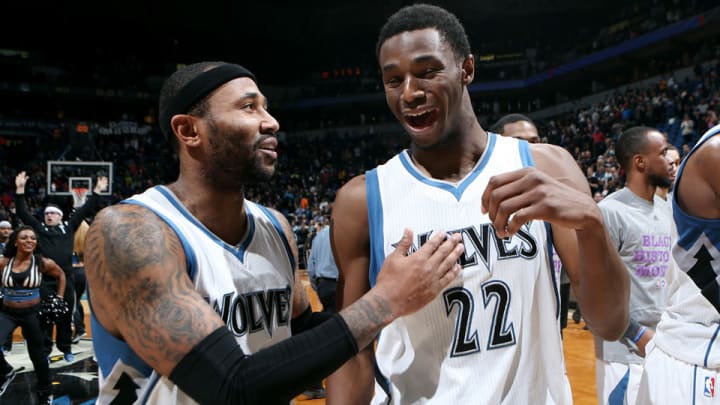Still living in infamy: 1972-73 76ers remain benchmark for NBA futility

It went largely unnoticed, just an early February regular-season game of little consequence. Minnesota’s 90-89 win over Memphis last Friday didn’t do much for the Grizzlies, firmly entrenched as the No. 2 seed in the Western Conference, and less for the Timberwolves, who are in a dogfight with the Knicks and 76ers for the NBA’s worst record. But the win -- Minnesota’s 10th of the season -- was significant to a dozen or so men scattered across the country, members of the 1972-73 Philadelphia 76ers team that will remain, for 42 years and counting, the worst team in NBA history.
“Oh yeah,” said Jeff Haliburton, who played 31 games with the Sixers that season. “Believe me, it’s noticed.”
As NBA records rise and fall, Philadelphia’s 9-73 season remains firmly entrenched as the NBA’s benchmark for 82-game futility. It is rarely challenged -- though Charlotte’s 7-59 mark during the lockout shortened '11-12 season established a new low for team winning percentage -- and in a watered-down league may never be broken. Consider: The ’13-’14 Sixers, a collection of above-average D-League players and second-round picks mixed in with a pair of talented prospects in Michael Carter-Williams and Nerlens Noel -- is widely acknowledged as a team purposefully designed to finish with a horrific record. They have 12 wins before the All-Star break.
• MORE NBA: Wolves, 76ers avoid No. 30 in NBA Power Rankings
Ask players to explain the disastrous ’72-’73 season and you get a variety of answers. For some it started with the coaching of Roy Rubin, “a perfectly nice man,” said forward John Block, but “way out of his element” on the sideline. In the spring of 1972, Rubin, a small college coach in Long Island, answered an ad the Sixers placed in the Philadelphia newspapers. The Sixers, NBA champions in 1967, had fallen on hard times and were struggling to find a qualified candidate. Enter Rubin, who was handed a three-year, $300,000 contract. After starting the season 4-47, Rubin was fired at the All-Star break. Fred Carter, the team’s leading scorer, likened the hire to a teenager being brought in to run a big corporation. In “Perfectly Awful,” Charley Rosen’s book on Philadelphia’s historically bad season, Rosen recalls a scene where John Q. Trapp was told he was being subbed out. Trapp said no, then pointed a friend in the crowd, who flashed a gun in a shoulder holster. Rubin let Trapp stay in the game.
Said Block, “When you know the coaching is less than what it could be, it’s discouraging.”
• NBA ROUNDTABLE: The worst team I ever covered
However it started, losing became contagious. Philadelphia dropped 15 straight to start the season, 21 of its first 22, 38 of its first 41. Carter likened the team to a “universal health spa,” where “if a team had any ills, they got healthy when they played us.” The Sixers featured some decent names -- Carter, Hal Greer, Tom Van Arsdale -- but most were well past their primes. As the losses piled up, the team spirit diminished. “It was loosely run but the players were selfish,” Counts said. “We didn’t play as a team. We played as individuals.”
“I wouldn’t wish a full season like that on my worst enemy,” Counts said. Added Block, “In one sense, it is good to be known for something in the NBA.” Still, for some there will be at least a momentary feeling of relief to no longer hold one of the NBA’s most ignominious marks.
“As a Christian, I would feel sorry for the team that breaks it,” Halliburton said. “As a human being, I would be elated.”

Chris Mannix is a senior writer at Sports Illustrated covering the NBA and boxing beats. He joined the SI staff in 2003 following his graduation from Boston College. Mannix is the host of SI's "Open Floor" podcast and serves as a ringside analyst and reporter for DAZN Boxing. He is also a frequent contributor to NBC Sports Boston as an NBA analyst. A nominee for National Sportswriter of the Year in 2022, Mannix has won writing awards from the Boxing Writers Association of America and the Pro Basketball Writers Association, and is a longtime member of both organizations.
Follow sichrismannix